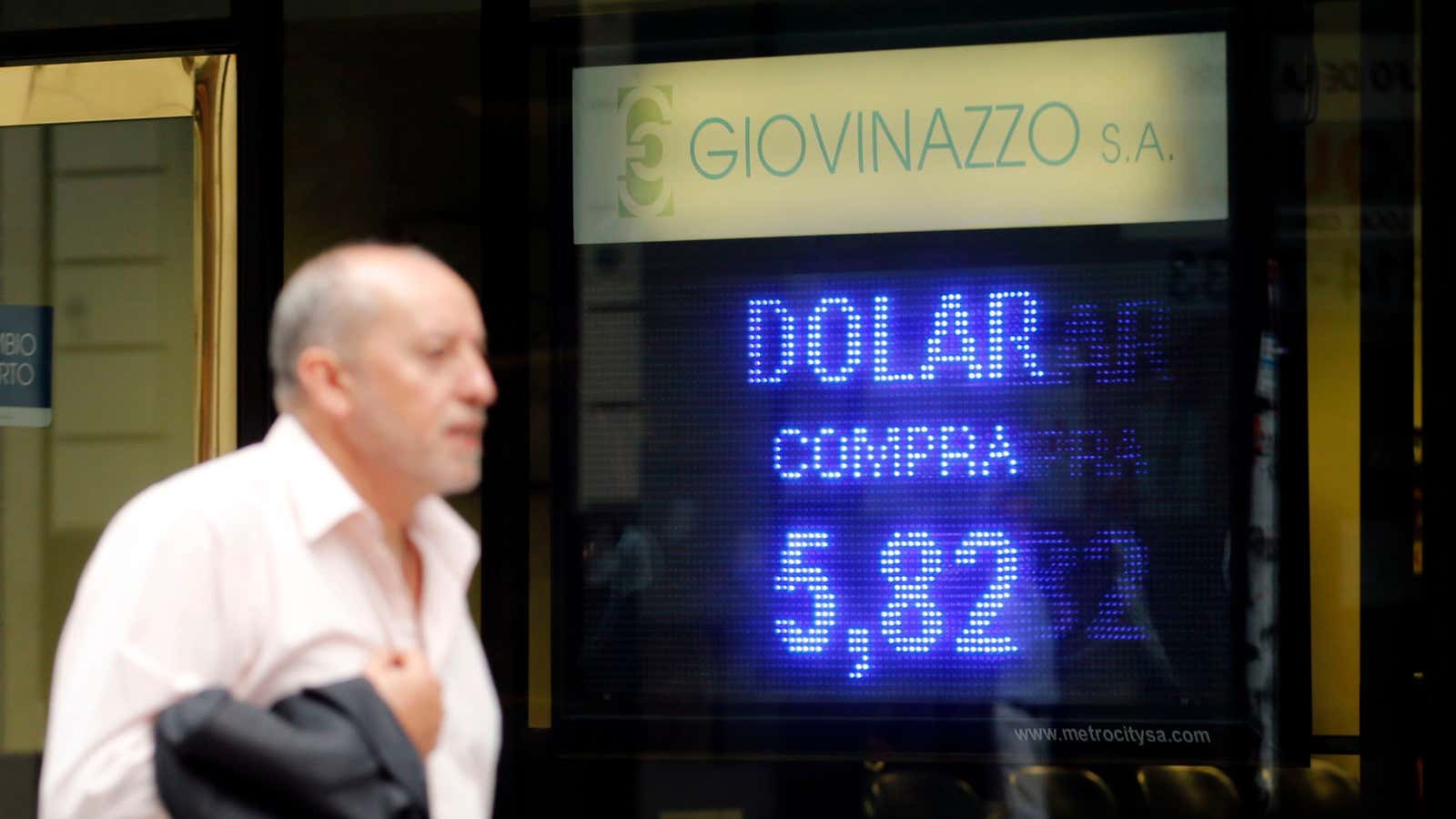Freelancing for foreign companies can be tricky in any country. In Argentina, however, it means negotiating a Kafkaesque maze of websites, checks and fees.
In October 2011 the Argentinian government began to impose its so-called cepo cambiario, or currency-exchange blockade, complicating most daily foreign-currency transactions. As a result, multiple currencies exist simultaneously: the Argentinian peso, the official dollar, the black-market “blue” dollar (much more expensive, available only under the counter), the “dollar card” (purchases made abroad with credit cards are exchanged into pesos with an extra 35% fee that goes to the AFIP, the Argentine tax authority) and others.
This means people who make their living partly or entirely from foreign clients have to jump through a variety of hoops in order to get paid. I spoke to three, who asked to go off the record for fear of falling under the AFIP’s scrutiny.
For those who travel abroad, getting paid is relatively easy. A specialist in the publishing industry, who often goes overseas to deliver lectures or workshops, says you always have to ask for payment in cash, and then hide the dollars or euros in your suitcase when you return. Some Argentinians also sell work (such as art) on US or European websites that will make direct money transfers to local banks, but not to third countries, so they use their foreign friends’ bank accounts to receive the payments and get the cash when they go abroad to visit them.
For those who work from Argentina and can’t afford to wait months or years to be paid, it’s more complicated. Pablo, a psychologist, has a patient abroad who runs his sessions through Skype. (They started out face-to-face when the patient lived in Buenos Aires.) Regular bank transfers are prohibited under the cepo, so they use what seems to be easiest option for small sums: Western Union. The patient sends foreign currency and the psychologist receives the money at a Western Union office in Buenos Aires: “There, you can only get pesos and the commission is paid by the sender,” Pablo says.
For more frequent transactions, however, Western Union isn’t practical. I spoke to a designer who generates all his income through an online store with a large presence in the United States. He told me that he had considered moving to another country—albeit only financially. In Montevideo, the capital of Uruguay, just a couple of hours from Buenos Aires by ferry, Argentinians can open a bank account without being local residents.
However, the designer lives a considerable distance from Buenos Aires. Instead, he found a solution—of sorts—using PayPal. Since the imposition of the cepo, Argentinians have been legally able to exchange dollars received via Paypal into pesos only at a few stores, and to a maximum of just $400 a month—which each transaction commanding a commission and more questions about the user’s activity. There are, however, people who maintain both Argentinian and foreign PayPal accounts, and will—for a fee, naturally—receive a payment into the foreign account and in return send pesos from the Argentinian one to a customer’s Argentine bank account. The exchange rate for this transaction, known as the “PayPal dollar,” lies somewhere between the official and the “blue dollar” rate, and such merchants can be found through a search on MercadoLibre, Latin America’s version of eBay.
A less shady option involves Payoneer, an American company based in New York. It gives customers a prepaid debit card that they can use to withdraw any currency (in this case, Argentine pesos) from a dollar-based Paypal account. “The commission is tremendous and the first time you use it, you do not know if you will lose all the money because the company is unknown here,” the designer says. “But you end up using it because it’s the only option you have.”
Follow Pablo on Twitter at @fernandezpm.
